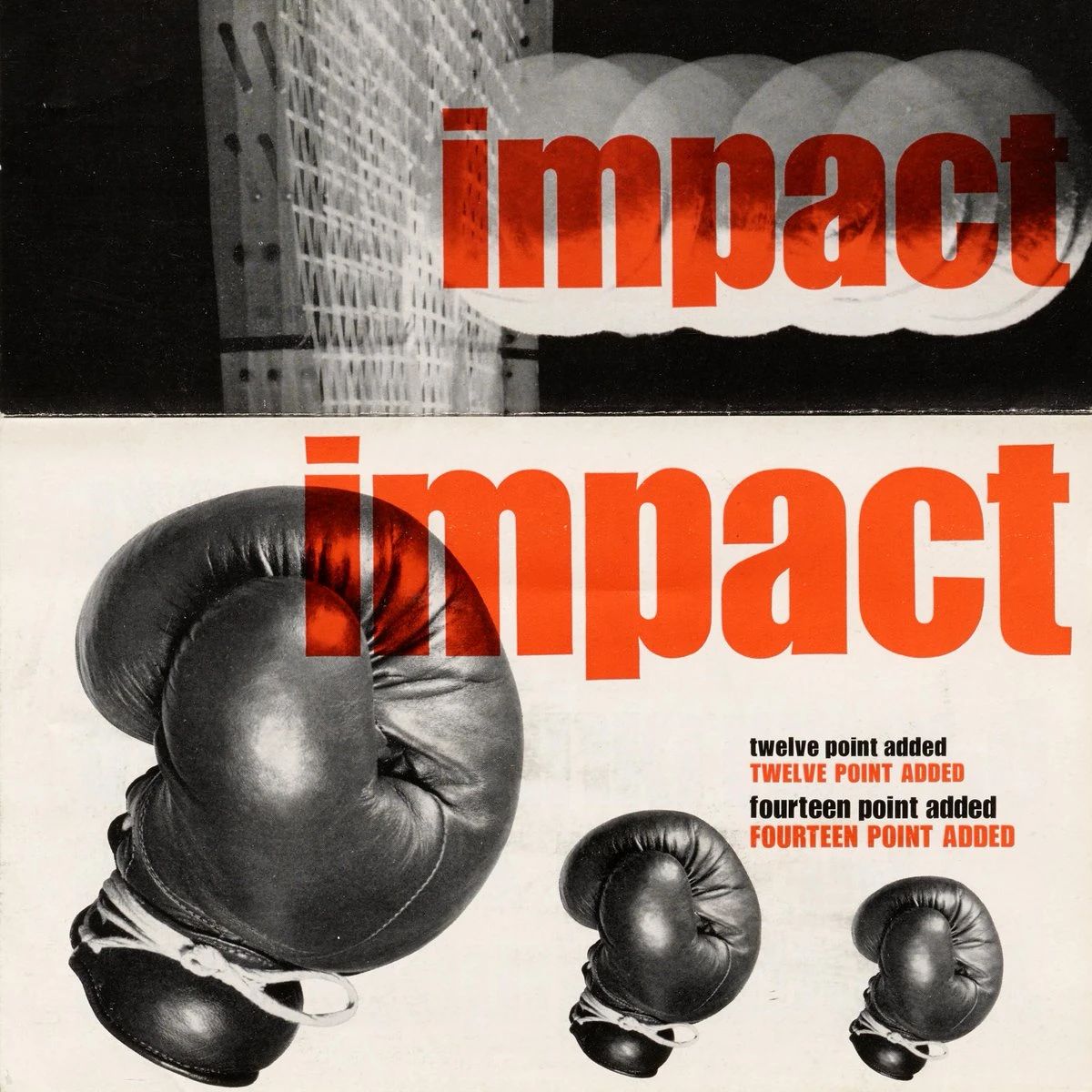
包含有相关主管机关明确规定不能出现的违规内容
因此无法通过审核
请点击文末【阅读原文】前往B站观看
英文稿:
Every meme is in the same typeface.
It’s called Impact.
But how did that happen?
Impact was designed by Geoffrey Lee in 1963.
It was bold, condensed & sans-serif, in line with the style of the 60s
and ideal for short pieces of text and punchy headlines.
Impact was influenced by a movement called the International Typographic Style or Swiss
Style,
which emphasized readability and cleanliness, with typefaces like Helvetica and Univers.
It took those staid fonts and gave them a dash of mod flavor.
Those were the days of metal typesetting, so Lee had to carve each letter by hand.
Lee sold it to the type manufacturer Stephenson Blake.
This is their original ad for the font.
Impact was later sold to Monotype, another typeface company -- they’re known for creating
Times New Roman.
And Monotype in turn licensed fonts to Microsoft.
So that’s how Impact ended up being included in the Windows Operating System
which was starting to dominate the market in the 90s.
And in 1996, Microsoft chose 11 “core fonts for the web”
a free, standard font pack that would work across the internet.
Impact was one of them.
By the way, that’s Webdings.
That distribution advantage helped Impact become the default in online forums.
Those memes were called ‘image macros’ after ‘macro instructions’
a term in computer science for a line of code that requests a pre-defined sequence of instructions.
And in 2003, one of these image macros — a picture of a cat with the words
“I can haz cheezburger” — launched the wave of modern memes.
Several meme-generator sites subsequently adopted Impact as well, adding a black outline
on the white font.
There are more than 11 fonts on the internet now.
But we expect memes to look a certain way, and that includes Impact.
And that’s probably not going to change anytime soon.
文章为用户上传,仅供非商业浏览。发布者:Lomu,转转请注明出处: https://www.daogebangong.com/articles/detail/Impact%20%20The%20font%20that%20emoticons%20love%20to%20use.html

 支付宝扫一扫
支付宝扫一扫 
评论列表(196条)
测试